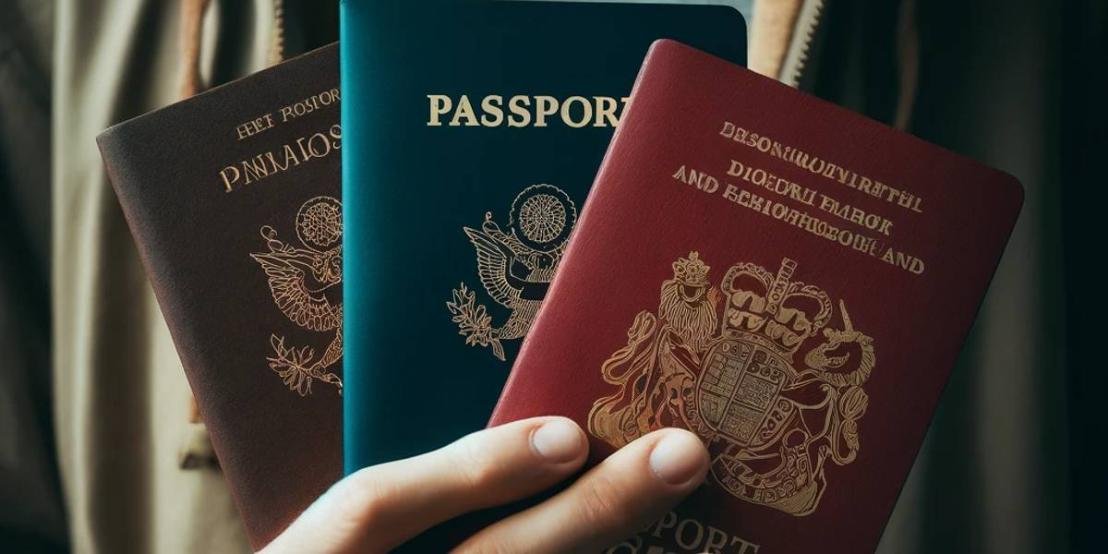 Contact
Contact
In a world where boundaries are increasingly blurred by technology and global mobility, the concept of holding multiple citizenships is a reality for many. It offers a plethora of benefits ranging from greater freedom of movement to enhanced security and economic opportunities.
But the question remains, how many citizenships can you have? The answer is not straightforward, as it depends on a complex interplay of international laws and national regulations. In this article, we’ll explore the limits and possibilities of holding multiple citizenships.
Having more than one citizenship can open doors to numerous advantages. It provides global mobility, including visa-free travel to various countries, which is invaluable for both personal and professional reasons.
Furthermore, it can offer educational opportunities by granting access to prestigious international schools and universities. Political stability is another significant benefit, as it allows individuals to relocate in times of unrest in their home country.
Tax benefits and the ability to work and live in multiple countries are also compelling reasons why people pursue multiple citizenships. Additionally, it can serve as a safety net for those whose home country is affected by economic or political instability.
Theoretically, there is no universal legal cap on the number of citizenships an individual can hold. However, the feasibility of possessing more than three citizenships hinges on the laws of the countries involved.
Some nations are quite liberal in their approach to multiple nationalities, allowing individuals to accumulate several passports. On the contrary, others have stringent rules that might limit the possibility of holding multiple citizenships.
Despite these differences, an increasing number of people are navigating the complexities to attain what’s often termed as ‘multiple passports’ or ‘compound nationality’.
Across the globe, countries have varied stances on dual or multiple citizenships. For example, some, like Canada and the United States, readily recognize and allow dual citizenship.
On the other hand, countries like Japan and India do not permit dual citizenship and require individuals to choose one nationality over another. This can pose challenges for those looking to maintain ties to both countries.
Moreover, certain countries may allow dual citizenship but with some restrictions, such as not allowing naturalized citizens to run for public office.
When contemplating acquiring another citizenship, it’s essential to consider various factors. Legal restrictions on multiple nationalities and the country’s stance on dual citizenship are paramount.
Applicants should also be aware of the potential obligations that come with a new citizenship, such as military service or tax liabilities. These commitments can have significant personal and financial implications.
Additionally, understanding the process of acquiring citizenship through descent or marriage will give prospective applicants a clearer pathway to achieving their goals.
While there is no global consensus on a legal limit to the number of citizenships one can have, various countries set their own rules. It is crucial to research and understand the laws of each respective country.
Some nations, like Italy and Ireland, encourage citizenship through descent and do not enforce a limit, while others may pose restrictions after a certain number is reached.
It is also important to note that while the USA does not formally limit the number of citizenships, there could be other non-legal challenges when juggling multiple nationalities.
There are several ways to legally obtain multiple citizenships. The most common methods include birthright, naturalization, marriage, and citizenship by investment programs.
Before embarking on this journey, it’s advisable to seek legal advice to navigate the intricacies of the process and ensure compliance with the laws of all countries involved.
For those looking to acquire multiple passports, below are steps typically involved:
The United States itself does not limit the number of citizenships an individual can hold. However, acquiring and maintaining five citizenships would require adhering to the regulations of each respective country.
It is a complex affair that demands a thorough understanding of international laws and often involves significant administrative work to maintain status in multiple nations.
Obtaining four citizenships is indeed achievable. Each country’s legal framework will dictate the possibility, and individuals must meet all the requirements set forth by each nation.
While the task is daunting and involves navigating through a labyrinth of legal processes, with careful planning and adherence to laws, it can be accomplished.
The United Kingdom does not explicitly prohibit multiple citizenships, including triple citizenship. Those looking to hold numerous nationalities must, however, ensure that the other countries in question also permit it.
This freedom can be particularly beneficial for individuals with family ties or business interests spread across different nations.
Mexico presents a welcoming stance on multiple citizenships. Mexican nationals are not limited by law on the number of citizenships they can possess, which fosters easier global mobility and cross-cultural ties.
However, it’s imperative for individuals to be aware of the requirements of other countries where they seek additional citizenship.
As we delve into the intricacies of holding multiple citizenships, here’s a video that sheds light on the subject:
Multiple citizenships can be a gateway to a world of opportunities. Still, they also come with their share of complexities. With careful consideration and legal guidance, individuals can navigate the challenges to reap the benefits of global citizenship.